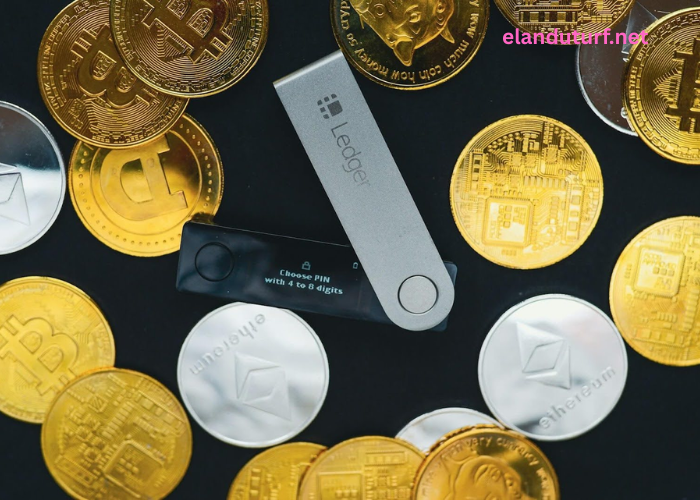If you’ve invested in cryptocurrency, there’s one truth you can’t afford to ignore: it’s only as safe as the way you store it.
Unlike traditional bank accounts or payment apps, cryptocurrencies don’t come with built-in fraud protection. If your coins are stolen or lost, there’s often no customer service number to call and no way to recover them. That’s why crypto storage isn’t just a technical topic; it’s a personal responsibility.
In this guide, we’ll break down the most effective strategies for storing cryptocurrency securely. Whether you’re new to the space or looking to upgrade your setup, you’ll find practical tips you can implement today.
Why Crypto Storage Matters
Before diving into methods, it’s worth asking: why is crypto storage such a big deal?
When you hold crypto, you’re essentially in charge of two things:
- Your Private Key: This is like the password to your crypto funds. Lose it, and you lose access.
- Your Public Key: This is your address or account number, visible to others.
Both keys need protection from hackers, malware, phishing scams, and even your own mistakes, like misplacing a device or writing down a password incorrectly.
Cold Wallets: The Gold Standard for Crypto Storage
What is a Cold Wallet?
A cold wallet is any crypto storage solution that keeps your private keys completely offline. This can include:
- Paper wallets
- Hardware wallets like Ledger or Trezor
- Air-gapped computers with wallet software
Why Use Cold Wallets?
When your keys aren’t connected to the internet, hackers can’t access them. It’s like keeping cash in a locked safe versus in your pocket.
Pros:
- Immune to online hacks and malware
- Excellent for long-term storage
- Total control over your assets
Cons:
- Risk of physical loss or damage
- Less convenient for daily trading
- Requires careful setup
Pro Tip: Store your cold wallet backup (like a recovery seed) in a bank safe or secure, undisclosed location. If possible, use a metal backup sheet that’s fire- and water-resistant.
Hot Wallets: Balancing Convenience and Risk
What is a Hot Wallet?
A hot wallet is connected to the internet, allowing easy access for sending and receiving cryptocurrencies.
Popular hot wallet types include:
- Mobile apps like MetaMask and Trust Wallet
- Web wallets tied to exchanges (MEXC, Binance)
- Desktop wallets
Advantages:
- Easy to set up and use
- Ideal for active trading and spending
- Supports a wide range of cryptocurrencies
Disadvantages:
- Higher risk of phishing attacks and hacks
- Requires strong password hygiene and vigilance
Best Practice: Never store large amounts in a hot wallet. Treat it like carrying cash in your wallet versus having money in a safe.
Combining Cold and Hot Wallets: The Hybrid Approach
Experienced crypto users rarely rely on just one type of wallet. Instead, they split their assets between cold and hot wallets, sometimes experimenting with emerging assets like TICS crypto for shorter-term trading while keeping long-term holdings offline.
- Cold Wallet: For long-term storage and large holdings
- Hot Wallet: For everyday transactions and small balances
This strategy reduces your exposure while maintaining flexibility. Think of it like keeping most of your money in savings and a smaller portion in checking for regular use.
Watch Out for Doxing When Sending Funds
Most people don’t realize this, but every time you send cryptocurrency from your wallet, the recipient can often view:
- Your wallet balance
- Your transaction history
This is called doxing in the crypto world.
Why It Matters: If someone knows how much crypto you hold, you become a more attractive target for scams, phishing, or worse, especially if it’s highly liquid assets like XRP USDT price that many traders watch closely.
How to Protect Yourself:
- Use centralized exchanges as intermediaries for transfers when possible.
- Avoid sending funds directly from your main wallet if privacy is a concern.
- Consider privacy coins (like Monero) for sensitive transactions.
Enable Two-Factor Authentication (2FA) Everywhere
Two-factor authentication adds an extra layer of security to your accounts by requiring a second verification method beyond just a password.

Best Apps for 2FA:
- Google Authenticator
- Authy
Why It Matters: Even if your password is compromised, 2FA can block unauthorized access.
Important Note: Never rely on SMS-based 2FA if you can avoid it. SIM-swap attacks can bypass this method. Always use an app-based or hardware-based authentication factor.
Level Up With Hardware Wallets Like Ledger or Trezor
If you’re serious about crypto investing, hardware wallets are a must.
What They Do: Hardware wallets store your private keys on a secure physical device, disconnected from the internet except during controlled transactions.
Top Brands:
- Ledger Nano X / Ledger Nano S+
- Trezor Model One / Model T
Setup Tips:
- Buy only from official websites to avoid tampered devices.
- Never share or photograph your recovery seed.
- Test restoring from the backup to ensure it works.
Remove Risky Browser Extensions
Browser extensions, especially on Google Chrome, can request excessive permissions.
Why It’s Dangerous: A rogue extension can log keystrokes, capture screenshots, or access data from other websites—including your crypto wallets.
What You Should Do:
- Uninstall unnecessary extensions.
- Use a separate browser for crypto transactions.
- Check extension permissions regularly.
Manage Token Approvals Carefully on Smart Contracts
If you use platforms like Uniswap, PancakeSwap, or other DeFi apps, you’ve likely granted token approvals.
What’s the Risk?
Some contracts can drain your wallet if you’ve given them unlimited permission to move your tokens.
Best Practice:
- Set token approvals only for specific amounts.
- Revoke approvals regularly using tools like Etherscan Token Approval Checker or Revoke.cash.
- Stay cautious with unfamiliar smart contracts.
Bonus Tips for Extra Security
- Use a Dedicated Device: Some crypto investors use a separate phone or computer for crypto activities only.
- Secure Your Recovery Phrases: Never store recovery phrases or private keys in cloud storage or digital notes apps. Always use offline, encrypted methods.
- Stay Updated: Follow crypto security blogs and news to keep up with the latest threats and vulnerabilities.
Final Thoughts: No Shortcuts in Crypto Security
Storing cryptocurrency safely isn’t a set-it-and-forget-it task. It’s a continuous process of:
- Staying informed
- Following best practices
- Updating your security methods as technology evolves
By combining cold storage, smart use of hot wallets, diligent privacy habits, and tools like 2FA and hardware wallets, you give yourself the best possible defense against crypto theft.
Your Action Plan Today:
- Set up a hardware wallet if you haven’t already.
- Review your browser extensions and remove unnecessary ones.
- Revoke old token approvals using a blockchain explorer.
- Enable 2FA on all crypto-related accounts.
- Split your holdings between cold and hot wallets.
Crypto is about financial freedom, but with freedom comes responsibility. Stay smart, stay safe, and keep your assets secure.




